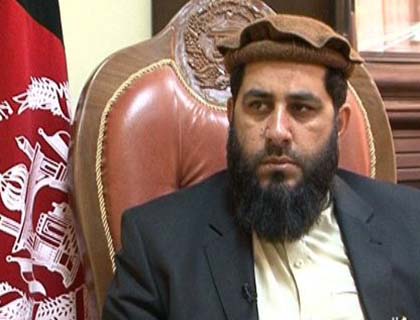KABUL - Fazel Hadi Muslimyar, the Senate Chairman and member of the selection committee for the Electoral Complaints Commission (EEC) announced that on Monday the committee would begin the selection process for EEC membership. The committee plans to nominate 15 individuals, from which President Karzai will select five for appointment.
The announcement comes after the Senate selection committee completed the nomination process for the commissioner positions of the Independent Election Commission (IEC).
Mr. Muslimyar and the other members of the committee assured that qualifications and merit would be considered first and foremost when preparing the list of nominees.
"The Selection Committee will start the selection process for the ECC membership by next week. We will do our best to recommend qualified candidates. The list of nominees will contain female candidates," Mr. Muslimyar said.
The EEC selection committee urged civil society groups to file nominations of their favored candidate for membership on the Commission. It was originally assumed that a civil society member would sit on the selection committee, however, due to apparent differences between civil society groups and the Office of Administrative Affairs and Council of Ministers Secretariat (OAACMS), no such person was placed on the committee.
Civil society groups have reportedly once again nominated Nader Naderi, the head of the Free and Fair Election Foundation of Afghanistan (FEFA), as their choice of candidate for ECC membership.
"Upon meeting, civil society groups unanimously approved the candidature of Nader Naderi for the ECC membership. Now, let us see that what decision the OAACMS takes with regard to our representative," said Bari Salam, a civil society activist.
According to the Law on Job Descriptions and Authorities of the IEC, it is stated that members of the ECC would be serve a six year term. It is also mentioned that the ECC will work independently from though alongside the IEC. Additionally, the Law clearly mentions that all decisions of the ECC with regard to voter fraud, other election violations and election complaints would be final and binding.
The IEC is permitted to announce the results of the Presidential and Provincial Council elections set to take place on the 5th of April next year only after the ECC gives the go ahead.
Looking ahead, security and organizational issues remain a major challenge facing the elections. The IEC said that over 20 days have passed since the start of the second phase of the voter's registration process, but still registration centers have not been opened in 12 districts of Ghazni, Zabul, Nuristan, Paktika, Kunar, Kapisa and Helmand provinces.
The Ministry of Interior (MoI) confirmed the ongoing security challenges in the areas listed by the IEC. However, the MoI assured that it would do everything it can to quell such threats before the 2014 elections.
Nevertheless, even if Afghan security forces are able to satisfyingly manage all security issues around the country come election day, the voter registration process that is going on at the moment may be seriously affected by instability in numerous areas of the country. If the registration process is offset enough, the election itself could see very low turnout at best or chaos and voter fraud at worst.
According to the IEC's website, currently 328,370 people have been registered to vote next spring. Of those registered, about 256,700 are men and 71,600 are women. (Tolo Nwes)

